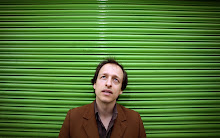I've just been down to the Royal Institution where Ben 'Bad Science' Goldacre was debating the quality of science journalism with science minister Lord Drayson. Simon Mayo chaired.
Lord Drayson was 'for' science journalism and Goldacre, inevitably, 'against'. Paul Drayson's argument was that there was a low point in science journalism in 2002/03, with MMR stories scaring parents into not taking their children for the vaccine. He said things have improved since then. He also made a case for sensationalism, because it gets so many more people talking about science, citing end of the world fears about the Large Hadron Collider project which made people aware about physics.
Goldacre, a chirpy, lively character whose fans filled the auditorium, said there should be more for the nerd in the media. He made a case for more features about general trends in science, rather than news stories about research being published. That seems unrealistic and a recipe for dullness.
He was dismissive of the Daily Express's science coverage. Today's front page was mentioned which talks of research into a new cancer drug which could help thousands. His criticism was of the Express generally, not of the story in particular. However, this story, from Breakthrough Breast Cancer, for whom I work as press officer, showed good quality journalism from the Express.
The story was well-written, with a good explanation of the research. It cited the peer-reviewed journal in which the research was published and quoted the scientists who led on the research, Professor Alan Ashworth and Dr Chris Lord.
Michael Hanlon, from the Daily Mail, made a stout defence of his newspaper's journalism. He said while his paper does sometimes write conflicting stories, that reflects research published in journals such as Science and Nature.
James Randerson, from the Guardian, said that a recent survey had showed that the vast majority of scientists were happy with how research was represented in the media. He also disliked the suggestion from Goldacre that there was something wrong with a journalist picking up a piece of research, quickly familiarising themselves with the story, conducting interviews and then writing it up within a few hours. ie he was defending the daily news journalism process.
Both Paul Drayson and Ben Goldacre shifted towards the common ground through the debate. Both have a role to play: the minister in promoting groundbreaking research and quality journalism where he sees it, Goldacre in scaring everyone in the media and science PR to do the best job they possibly can.
I think that Goldacre's appeal for more journalism for the nerd is unrealistic. Science is more often than not funded by ordinary non-scientists who raise money for research in the name of a good cause. These millions of people need to hear about the research, so they can see the benefit of the money they are raising. Without their money, many scientists would be out of a job, and we wouldn't see progress made in treatment of diseases like cancer. We need to see science not relegated to a niche, but promoted as being important and interesting for everyone.
Result of the debate: a high scoring match, edged by Paul Drayson.
Wednesday, 16 September 2009
Goldacre debate with science minister
Subscribe to:
Post Comments (Atom)

Not a bad summary. I think you slightly miss Goldacre's point, I must say.
ReplyDeleteHis point was that it's not really useful to the debate to comment on the potential accuracy of one story - indeed the particular bit of research pointed to does seem very good and sound and quite well reported, on the face of it.
But readers are not given the tools to know when they are faced with one of those stories, or one of the many which misrepresent research, cherry-pick studies to find a story or just show a basic misunderstanding of the science involved.
His point was that everyone could be forgiven for treating that story with suspicion, and wouldn't it be much better if there was a culture of science journalism that meant when something was printed on the front page of the express/etc, our first instinct would be to trust it rather than the other way round.
The coffee example was enlightening - journalists report on individual studies when it turns out the aggregate evidence is about 50/50 in this case. So the first reaction would be 'write a story about how the evidence is about 50/50,' then. But as you rightly point out, that's not an interesting story. But it -is- the truth, so perhaps the better answer is 'don't write about coffee until such point there is a story which is both interesting and scientifically honest.'